+86 13816508465
Pump Introductions
Aug. 01, 2022
Introduction:
This article will guide you through the process of selecting a right pump for your garden applications step by step. There are different types of garden water pumps that suit to various jobs and situations around the garden. Generally, the garden pumps are mainly applied for 3 purposes. Drain water from a pond, a pool or a hottub, water plants around the garden, supply water to the domestic water works, etc.
Whatever the reason, you can follow below steps to choose the best one for the required job.
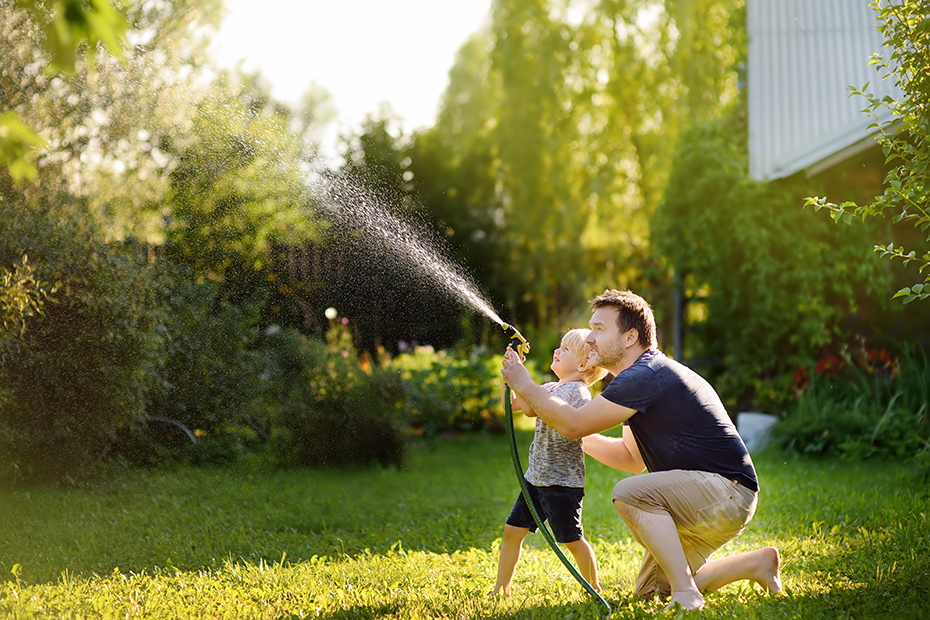
What purpose do you use the pump?
The purpose of a pump will determine what kind of garden pumps you will use.
As mentioned above, there are mainly 3 reasons when you want to use a garden pump.
Let’s follow each purpose and find out the right model for the exact purpose.
DRAINAGE PURPOSE
You may face the time when there are too much unwanted water that needs to be drained out in very quick time, such as drain a pool, a pond or a sump pit that is full of water, empty the flooded basement or cellar after a heavy rain, clear water from the wetted laundry room or transfer water from one place to the other place for water recycling.
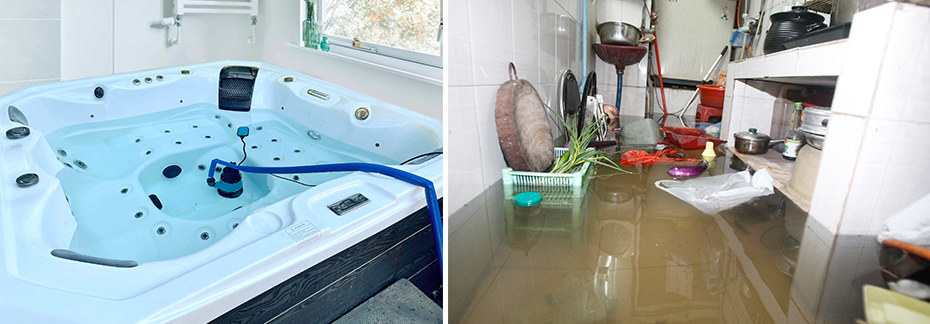
Under these circumstances, you will need a submersible pump that can transfer a large amount of water within the shortest time.
How to choose the right submersible pump among so many models?
Get aware of below questions and you will find the answer of your own.
What type of water do you need to pump?
The submersible pumps are divided into clean type and dirty type, with different baseplates for the solids passage. Clean water pump is suggested to use in water with solid particles less than 5mm, while dirty water pump is to use in water with solid particles up to 35mm. If you use clean water pump in dirty water areas, it will shorten the pump’s service life quickly as the impeller will be stuck by debris and thus burn the motor quickly.
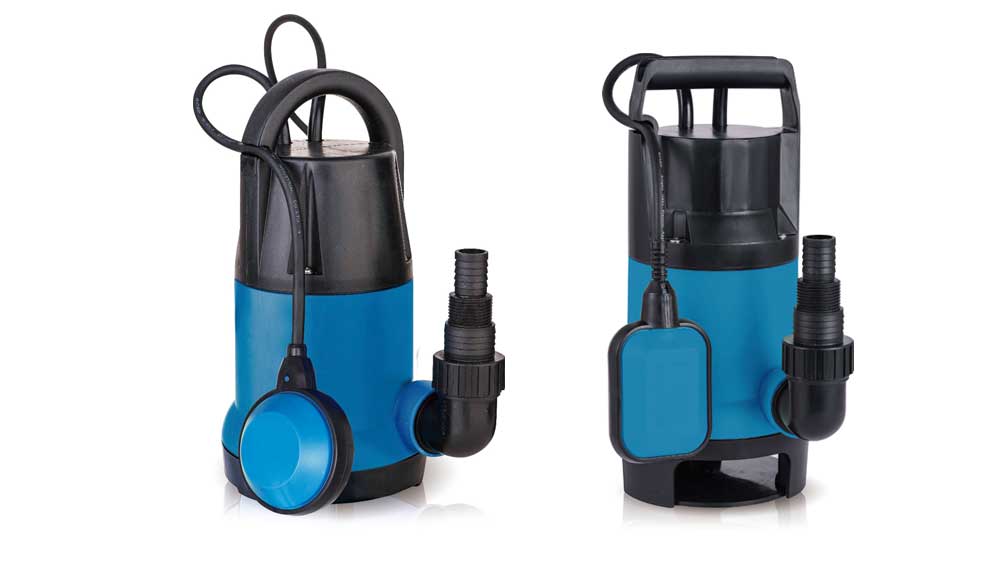
If you’re not sure about the water you’re going to pump, it is suggested to choose a 2in1 water pump. The 2in1 water pump integrates a prefilter at the baseplate. Once lift the prefilter down, the filter allows solid size less than 5mm pumping inside and protect the pump impeller from being blocked. If the water has large solids, the prefilter can be lifted up to allow the solid size up to 35mm pumping inside.
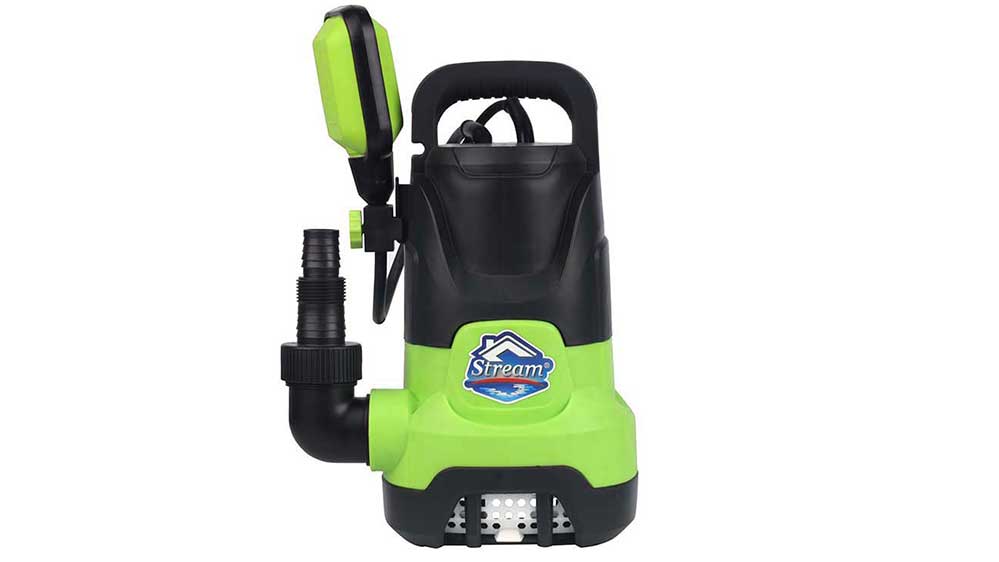
What pump materials do you require?
Normally, the submersible pumps are made of either plastic or stainless steel.
The plastic pump is economical and light in weight. If you don’t have specific working environements, this would be a cost-efficient option.
The stainless steel pump features in full stainless steel construction. Therefore, it is much more corrosion resistant to harsh environments. If you are looking for a pump that will pump unexpected water and serve with longer life, the stainless steel pump would be the option.
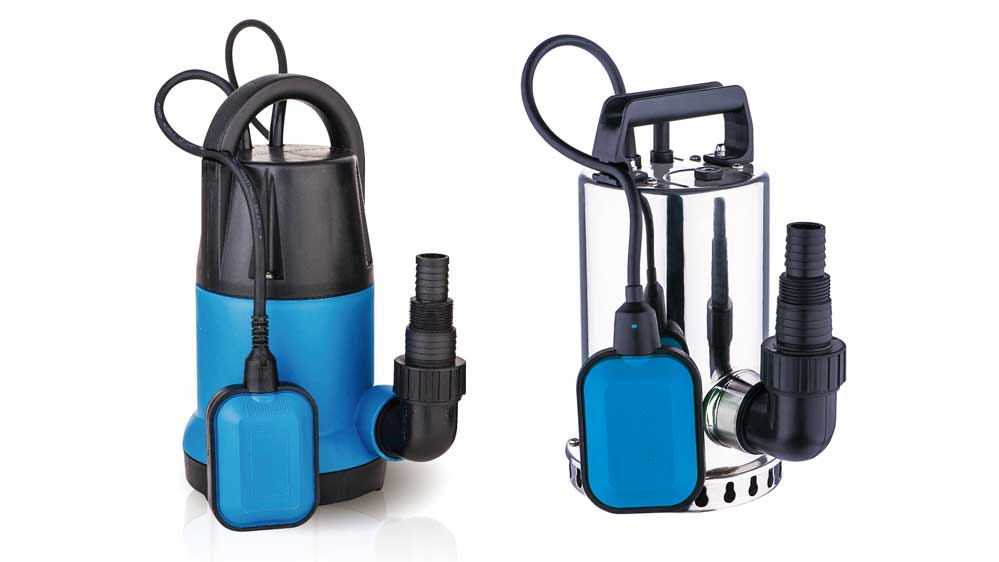
What height and capacity do you want to deliver?
There are two important terms when choose a suitable submersible pump.
Delivery Height
The delivery height refers to the height that the pump lifts from the water source to the drainage points. Normally we indicate the maximum delivery height in the pump specifications. But in actual working situations, you cannot use the pump under the maximum value. It is suggested that the pump’s maximum delivery height be 1.2 times higher than the actual lifting height. For example, if your water source to the drainage points is 3m high, a pump with max.height at 5m is suitable for you.
Remarks: it is not the bigger delivery height, the better pump is. If you choose a pump with a far larger delivery height than the actual lifting height, the pump will run at high capacity and lead to overload status. It will damage the motor and shrink the service life greatly.
Discharge Capacity
The discharge capacity is the delivering speed that the pump moves water from one place to another place. Generally, when you choose the right delivery height, the discharge capacity will be fixed as well.
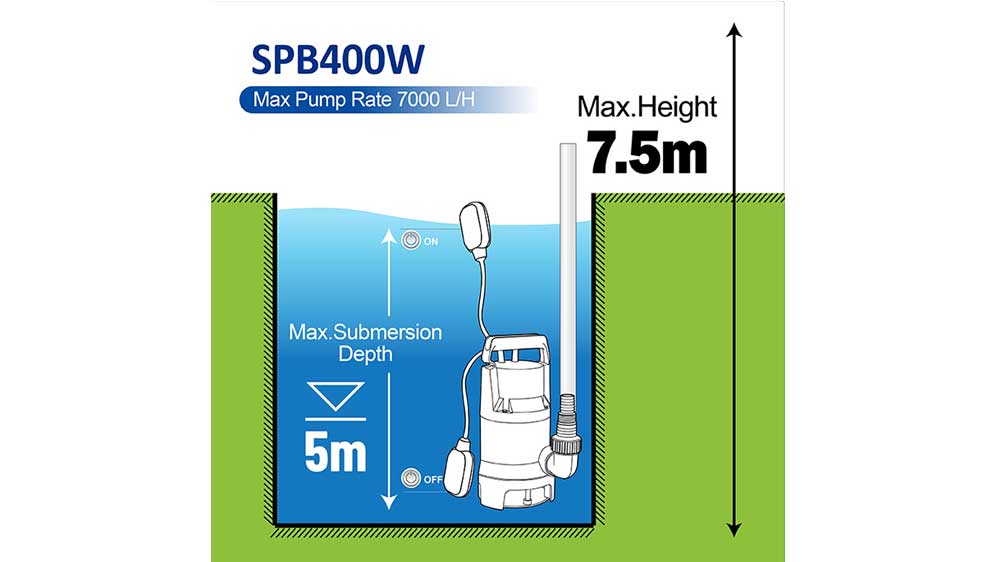
How lower water level do you want to pump?
Under specific conditions such as drain a hot tub or basement, you may want to drain the water level as lower as possible. In this way, a submersible pump that can drain to low level is especially important.
Generally, a submersible pump with float switch will leave at least 12cm residue when it turns off automatically. If you lift the float switch vertically and let it drains manually, it still leaves 1-3cm water level depends on clean or dirty mode. This can be accepted for most cases, but not for those who want to pump the water almost dry.
You will need a submersible puddle pump or residue pump. It can drain water to 1-3mm lower and leave your hot tub completely dry without bringing the water manually through a can again.
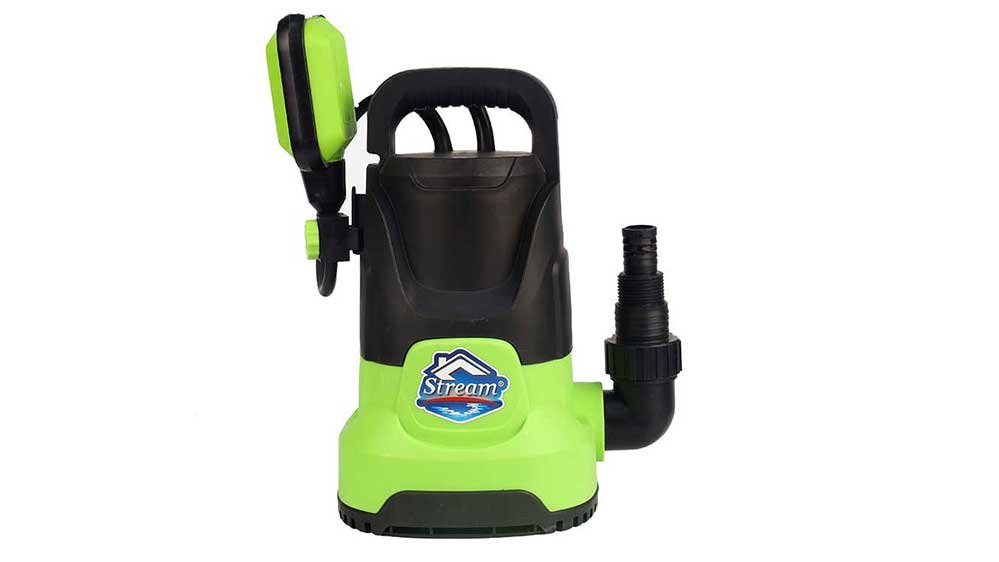
WATERING PURPOSE
The most important part of the garden chores is watering plants. You will find cases that require different amount of water, such as a sprinkler, a drip irrigation system or an extensive water systems. Fetching water from a well, a rainwater tank, or directly a tap, you will need a pump to supply sufficient water pressure to these spraying heads.
As environmental protection has been advocated more and more, saving water resources and thus saving our water bill is valued by most of the home owners. Except for the drinking water, we prefer to use alternative water sources like rain water or underground water to water the garden. A pump is important to provide the correct pressure to use these water sources.
Here are the tips to find the correct pump for your watering needs.
What water sources do you use?
If you want to deliver water from an underground water source, you may need the shallow well jet pumps or high lift submersible pumps. Shallow well jet pumps can suck water from 9m depth, but they can only be put outside the water in a protected area. While the high lift submersible pumps can be put directly inside the well and lift water up to 40m high from the water source.

Make sure that the depth of the underground water is no deeper than 10m, otherwise you will need a deep well submersible pump instead. As we are talking about the garden pumps in this article, so we will just focus on the pumps mostly used in gardening.
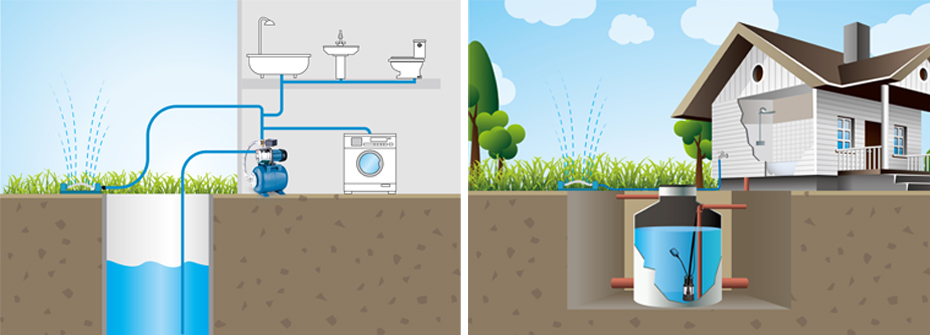
If you need to use the water from a rain water tank above ground, it is suggested to use the automatic jet pump. With an automatic controller, the pump can start immediately whenever water is needed. And it can be connected both to the rain water tank and the mains water system to ensure that you have sufficient water to use.
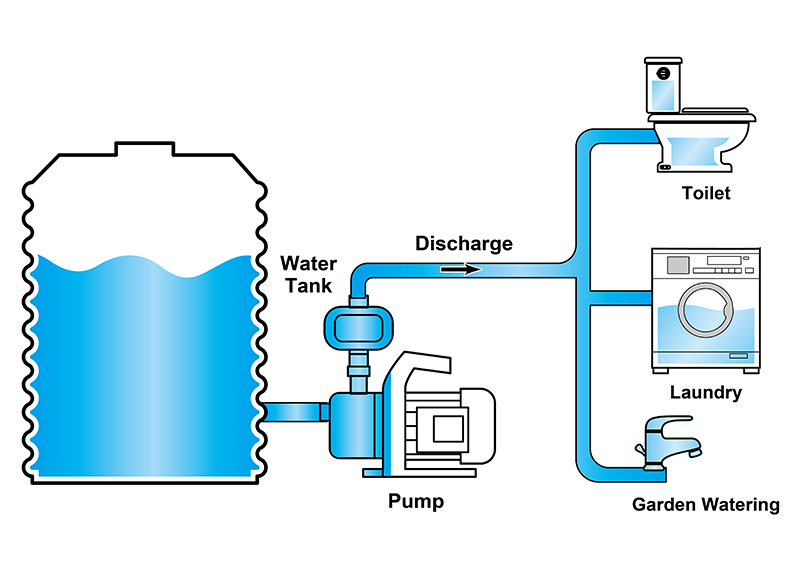
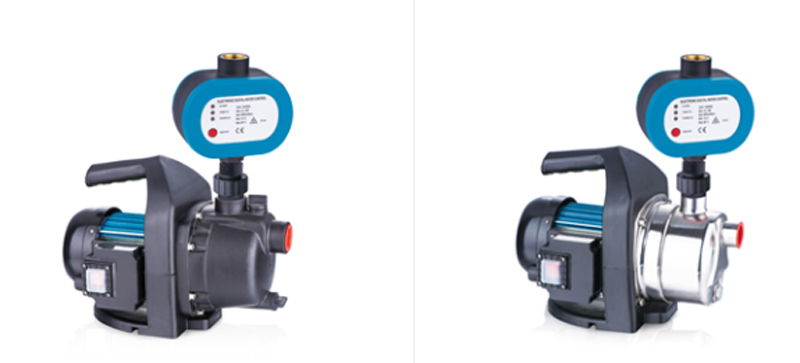
How to choose the right sized pump?
Knowing what source you have, you are going to choose the right pump size. The first thing to figure out is how much water pressure you have, then the water flow you need.
Water Pressure
It's easy to check your water pressure. Turn off all appliances or hoses that would drain from that water source. Screw on a water pressure gauge, and turn on your faucet. The gauge will show your pressure clearly by psi. That is basiclly how much height you will need to pump.
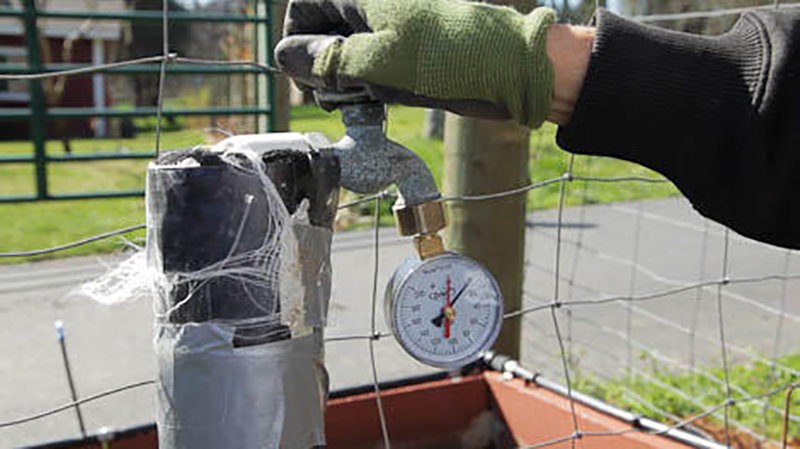
Water Flow
The water flow depends on the watering system you apply. Different systems requires different sprinklers and spraying range for various plant and lawn watering needs. For example, if you need a small sprayer with 4m spraying range, then you need 500L/h flowfor this outlet. Integrating different spraying heads and considering of the hose loss, you may choose an appropriate pump size or be suggested by the system provider.
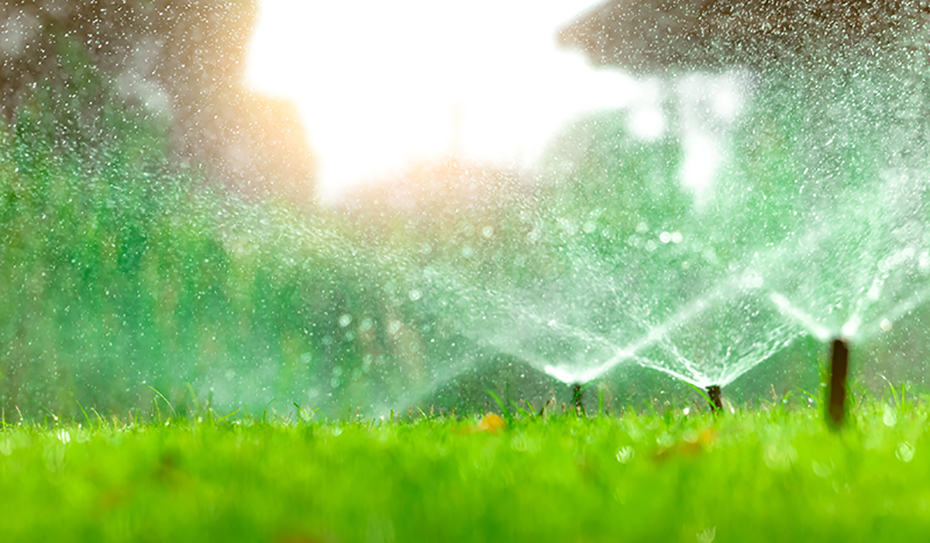
WATER SUPPLY PURPOSE
If you want to supply water to the house and garden depending on the demand, you will
need the automatic water booster system, that is what we called the domestic waterworks.
A domestic waterworks is consisted of a jet pump, a pressure tank and a pressure controller. It is used to save drinking water, and use alternative water instead from a rainwater tank or a shallow well to different water outlets inside house or outside garden.
Inside house, the domestic waterworks supplies the water for toilet flushing or washing machines. Outside the garden, it uses the water to water plants, fill ponds or do other cleaning work.
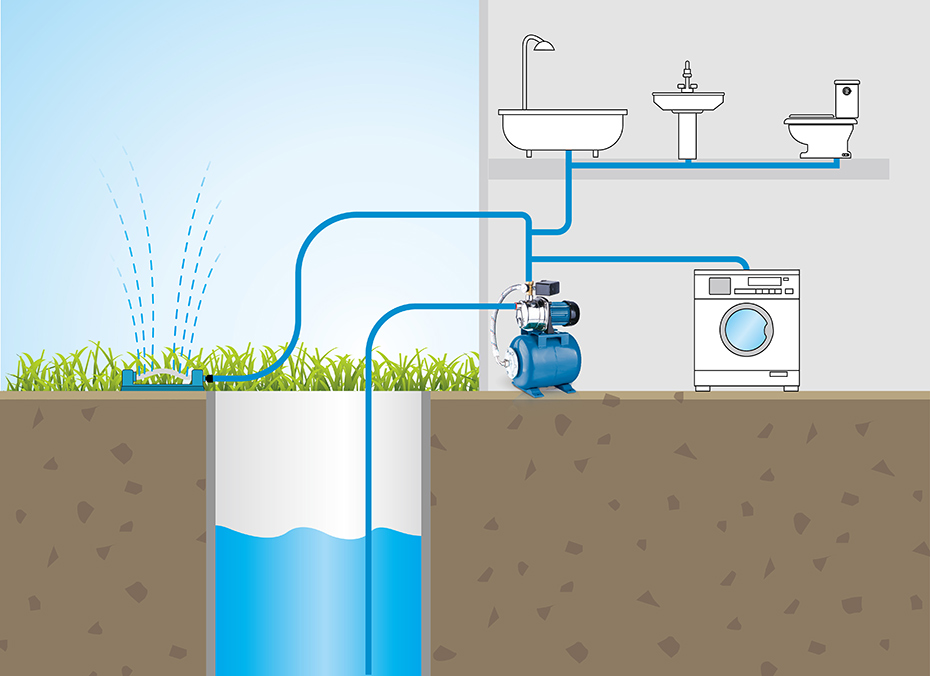
The unique feature of a domestic waterworks is it has a large pressure tank to ensure that the pump does not start every time when water is used. Unlike the ordinary pump with a pressure switch, it can work super efficiently and deliver constant pressure to the water outlets.
Pay attention that the domestic waterworks is only suitable for clean water without any dirt or other particles. In order to ensure the best service life, it is suggested to install a prefilter to remove the particles inside the rainwater or well water.
How to choose a proper domestic waterworks?
Firstly of all, you need to know what pump performance you are going to use.
The water pressure, the water flow, the motor power and built-in materials are to be considered.
You can refer to the content in watering purpose which advise how to judge your water pressure and flow rate. These two performances are the main factor to decide which model you need. For built-in materials, we have plastic and stainless steel for reference.
That depends on whether you need a longer service life or an economical choice.
In general, the domestic waterworks is a cost saving system to use alternative water sources while the drinking water is becoming so expensive. And it works automatically and silently, bringing convenience to home owners.
Following each purpose, now you will find the right pump for your water pumping needs.
If not, you can contact our sales for specific pump requirements.
Previous: 4 Tips to Choose A Booster Pump for Your Home
Next: None
Address
No.17 XeDa Jimei Ind. Park, Xiqing Economic Development Area, Tianjin, China
Telephone
+86 13816508465
QUICK LINKS